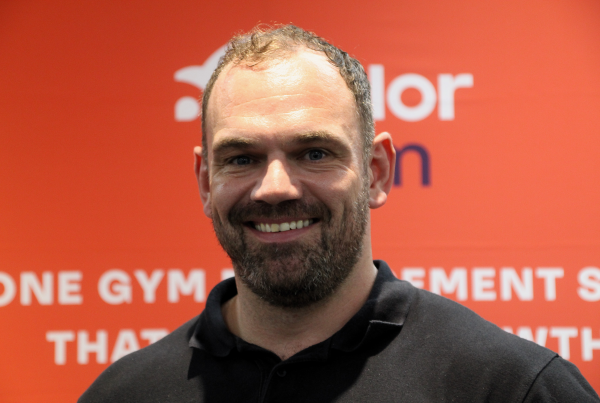By Dr Dane Vishnubala, Chief Medical Advisor, Active IQ
Between 2020 and 2030, almost 500 million people will develop heart disease, obesity or diabetes due to physical inactivity, globally. These chronic, preventable conditions will cost £23bn if governments fail to take urgent action.
It is against this backdrop that the World Health Organisation has published its first-ever global report on the high cost of physical activity. The report measured the extent to which governments are implementing recommendations to increase physical activity across all ages and abilities. The conclusion is worrying. Data from 194 countries showed that less than 50% of countries have a national physical activity policy and only 30% have national physical activity guidelines for all age groups.
How does the UK stack up in this report? The good news is that compared to countries with similar socioeconomic demographics, we do OK. But OK is not good enough.
While activity levels are trending in the right direction, COVID-19 and the associated restrictions created some significant setbacks on activity levels in the country. In April 2021, Sport England issued its Active Lives Adult Survey to show the impact of the first eight months of COVID-19 on activity levels, including which activities grew in popularity and which audiences struggled.
Encouragingly, most physically active adults in England maintained their habits despite the challenges. However, COVID-19 restrictions led to a concerning increase in the number of people who did less than 30 minutes of activity a week or nothing at all.
And not all demographics were affected equally. Women, young people, those over 75, disabled people, those with long-term health conditions, and those from Black, Asian and other minority ethnic backgrounds were the most impacted during lockdowns and beyond.
Active people remained active which is great, but a huge part of the population is at risk of becoming part of the 500 million people the WHO predicts will develop chronic health conditions due to inactivity. This is where help is urgently needed, and I believe this is where the fitness industry can take a leaf from the healthcare sector’s book.
Making every contact count
The Making Every Contact Count approach encourages health and social care staff to use the opportunities that come up during their routine interactions with patients to have conversations about how they can make positive improvements to their health and wellbeing.
It sounds simple, doesn’t it? And that’s the beauty of it: it is simple. And it’s an idea that can be delivered at scale.
The fundamental concept is that staff across health and care, local authority and voluntary sectors have thousands of interactions with their community every day. As a result, they are well placed to support health and wellbeing and have potentially life-altering conversations about physical activity.
It is generally assumed that in their degrees, doctors will have received limited education on how to prescribe or advise on physical activity. Our UK Chief Medical Officers have published clear guidance on physical activity. You have probably heard it before but it’s worth repeating here: the UK Chief Medical Officers’ Physical Activity Guidelines say that, “if physical activity were a drug, we would refer to it as a miracle cure, due to the great many illnesses it can prevent and help treat.”
Physical activity is therefore not just a health issue. It contributes to building strong communities by bringing people together – all while supporting and growing the economy.
A call to arms
The concept of Making Every Contact Count can easily extend to the fitness sector. Like doctors, fitness professionals working in gyms and leisure centres have hundreds of interactions with their community every day and not just with people who come to their facility to exercise.
Imagine someone who routinely brings their child to swimming lessons and stops at the leisure centre’s café. Could the staff member selling them their coffee also signpost to other services or staff members who may be well positioned to give brief advice around physical activity? Does this brief physical activity advice need to be given by a fitness professional or could it be any member of the leisure facility with some training? Would that conversation make a difference? What activities would be interesting to this person?
If we only focus on the people that come into the gym to work out, we’re missing an opportunity. Operators should think about how staff can provide small, impactful interventions in other areas of a leisure centre. This also extends to all roles within a facility too. Think about reception or sales staff and the number of potential interactions they have each day.
It’s important that personal trainers and fitness professionals take this responsibility seriously, and their potential to have a larger positive impact on their community. The industry provides several routes to high-quality education – the Active IQ and Fitpro partnership has plenty to offer, as does CIMSPA.
For fitness professionals, the recently updated fitness instructor and personal trainer qualifications include a great emphasis on behaviour change. However, in-house or bespoke training provided to other members of the team could lead to a consistent message and increase the number of ‘contacts’.
Being active every day provides the foundation for a healthier and happier life. Those that are already active understand this intrinsically. But those that are yet to build an activity habit need a nudge and we can not underestimate the value that our health and fitness community can play here. Even small changes can make a big difference over time.
My hope is that by the time the WHO issues its next report, it will show a marked decline in some of these worrying statistics. Through education and conversation, I’m confident we can make that happen. There is no magic solution but remember that every brief intervention, every conversation, every contact could make the difference.
Active IQ is a member of the ukactive Strategic Partner Group – find out more here.
Disclaimer: Any views or opinions expressed are solely those of the author and do not necessarily represent those of ukactive.




